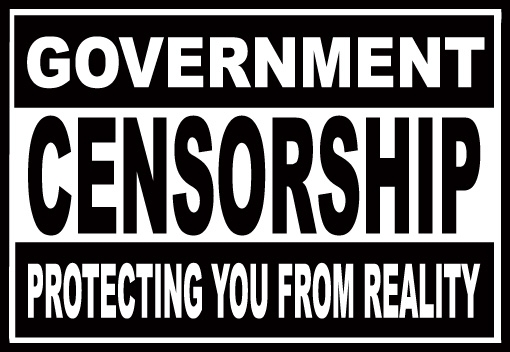
A ban on common sense
As a content producer for a current affairs program, these clauses are an ambiguous and scary proposition. The vaguer the law, the more prone it is to abuse. In fact, it’s even possible that if I talked about my puppy Buffy, who was kidnapped a while ago, I could face prison since I depressed readers and 'hurt national sentiment!'
On Monday, the government of China passed a law forbidding online dating for its soldiers. The logic behind the measure was that lonely hearts might let sensitive information slip to conniving spies posing as love interests. In the words of a Chinese military official, “People with ulterior motives may make use of the soldiers' personal information and pose a threat to the safety of the army.”
So essentially the Chinese military is assuming that an online date will involve questions like: “So what are your likes and dislikes?…What do you like to eat? ...What can you tell me about the integrated inertial navigation system on your DH-10 nuclear cruise missiles?”
Frankly speaking, I’m not surprised that Beijing has added matchmaking to its list of restrictions, given that previous regulations include barring blogging, online job hunts, and even making friends on the internet.
As an outsider, these constrictions should seem absurd and illogical. But who am I to talk about the virtues of free speech? I can’t even send any texts or mails making fun of the government without facing serious jail time. Apparently, mockery is seen as a direct threat to democracy! And there’s more to come, courtesy of two new measures from the Federation.
The first is the new Pakistan Electronic Media Regulation Act, initially a brainchild of former President Parvez Musharraf to muzzle the media, and prevent Frankenstein’s monster from attacking its creator. However, our lawmakers have made some alterations to the bill, and will introduce it in the next session of parliament to usher in a new era of media freedom, or so they say.
However, a recent BBC report on the issue has something entirely different to say on the matter. The report cites clauses in the bill stating that news channels will be bound to “assure the government that none of its programs will promote hatred.” In addition to this, “programs opposing the ideology, sanctity, independence and security of the state of Pakistan cannot be broadcast.”
The second excellent piece of legislation in the works specifically has the internet in mind. A recent news story leaked a confidential draft bill by the Pakistan Telecom Authority to clamp down on blasphemous material online, and some aspects of it are worthy of Mordor. For instance, sites will be blocked containing “information with objectionable content”, or which “hurt national sentiment”, or which “undermine integrity and solidarity of the state”.
So if I talk about bad governance, I could be banned for “objectionable content”. If I talk about institutional clashes, I could be banned for “promoting hatred”. If I talk about drone strikes, I could be banned since the drones harm the “security of the state”. If I talk about fake degree scandals, I could be banned for questioning the credibility of parliament, and hence “undermining the integrity and solidarity of the state.” If I talk about the powerlessness of the poor, I could be banned for “opposing the ideology of the State,” since we all want the poor to be empowered. In fact, it’s even possible that if I talked about my puppy Buffy, who was kidnapped a while ago, I could face prison since I depressed readers and “hurt national sentiment!”
As content producer for a current affairs program, these clauses are an ambiguous and scary proposition. The vaguer the law, the more prone it is to abuse. There is no clear definition of what qualifies as “objectionable content”, or what harms the “sanctity of the state”, or what “hurts national sentiment”. Except of course, our parliamentarians, who will be given a free hand to allow and disallow any content as they please, or in layman’s terms, “Goodbye media freedom! It was nice knowing you!”
Lawmakers are now getting closer and closer to monitoring the public’s actions to suit themselves, legislating human behavior for their own interests. And now that they have gotten a foot in the door, I shudder to think of what will follow in the future. Maybe we will be submitted to daily polygraph tests to gauge our loyalties lie with the state. Maybe we will have security cameras installed in our homes to ensure we don’t speak against the government in private. Maybe we will have a neural inhibitor installed in our heads that gives us shocks every time we say something against the President. The possibilities are endless.
Orwell would be proud of our government’s actions. But while we may lament them in the days to come, there’s one little silver lining I can think of: The Chinese won’t feel lonely anymore. They might not be allowed to date, but at least they’ll know they’re not alone in their misery.




COMMENTS
Comments are moderated and generally will be posted if they are on-topic and not abusive.
For more information, please see our Comments FAQ